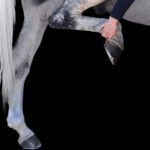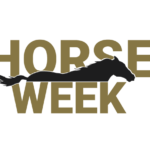[/caption]

Lexington, Ky., July 7, 2004 — I’ve reported about the need for a United States Equestrian Federation (USEF) hunter/jumper affiliate until I was blue in the face and described the difficulties with the mileage rule until I was an even more vivid shade of indigo.
Yesterday, I happily realized my days of writing about these long-standing problems are numbered, so maybe my complexion can return to normal. At its mid-year meeting, the USEF board put in motion solutions to both long-running dilemmas, prompting federation President David O’Connor to call the moment “historic.”
And what does all this signify for you? Well, if you’re a hunter/jumper person, it means there will finally be a group that focuses on improving things in your discipline, the way the U.S. Dressage Federation and U.S. Eventing Association have done for their sports.
Hunters and jumpers are now governed from within the federation, which had many other things to do and couldn’t offer the range of programs that other affiliates provide, from expansive educational opportunities to innovations that improve the sport. Also, dating back to the days when the federation was called the American Horse Shows Association, hunter/jumper people often have complained about the way their needs have been handled. Let’s hope they’ll finally be satisfied when the affiliate gets rolling.
On the other major milestone du jour: approval of pursuing a change in the way shows earn a place in the calendar means that in the foreseeable future, substandard fixtures no longer will have a permanent ticket to ride. That will signal many better showing experiences on the horizon for exhibitors.
The Competition Date Approval Task Force that is looking into the mileage rule, a measure that has prohibited the inception of new (and in some cases, better) recognized shows, finally aired the report it has been working on since David assigned it seven months ago. He made that one of his priorities as he took office.
The work has even greater significance than the original topic suggested, because task force members realized the date situation is linked to many other things that need to be changed. These include the need for more stringent show standards (wouldn’t you like to have better footing and more parking?), as well as an overhaul of awards and show ratings.
The task force doesn’t believe that show dates should be granted in perpetuity as they so often are, giving managers no incentive to improve conditions. There’s talk of working out a licensing arrangement for show dates with special conditions for “heritage” shows like Devon.
The board accepted the report, giving the task force the go-ahead to continue refining its work. Another presentation will be made at the USEF convention in January as the basis for developing rule changes.
There was also concern that despite the fact that USEF has 28,000 hunter/jumper members, the would-be affiliates only had a few hundred members. However, board members also realized (with a bit of prodding) that no affiliate would attract members until it got the official nod from USEF and membership was made mandatory for those who want to compete in the disciplines at recognized shows.
But the pressure was on to pick an organization and tinker with its plan to get it in shape. Bill’s group got the nod overwhelmingly, by a 21-2 secret ballot. Now the USHJA, which already has a vision, will work with federation CEO John Long (David’s right-hand man). They will flesh out an operational plan based on real economic data provided by the federation, rather than the flawed figures both groups had been dealing with in their proposals.
The USHJA is interested in a wide variety of prospective members, including those who are involved with unrecognized shows and do not belong to the federation. Through USHJA, Bill believes, they can come into the fold, and perhaps eventually join the federation and make it stronger.
And unlike the situation with USAE and USET, where the national governing body feud engendered bitterness, Bill and Gary immediately shook hands and hoped to work together.
“We’ll do whatever we can to help them,” said Gary, noting many of his group’s members also belong to the USHJA. So expect good things in the future. Bill is open to new ideas to make the disciplines better for competitors and more appealing to the public.
“While there are still questions out there, I think the board made a good decision. It was a hard decision to make because it’s a historic moment in giving some independence to the hunter and jumper disciplines,” Bill told me.
The meeting was another coup for David, the 2000 Olympic eventing individual gold medalist. He stepped up last year to jump-start the birth of the new federation and end the time- and money-consuming battle between USAE and USET. The same confidence David shows when he’s jumping a horse off an Irish bank was evident in the way he ran this important daylong session. He’s cool and calm, hearing out the board members’ comments and suggestions. If they haven’t come up with the right answers, he finds a way to offer them, but so subtly they believe it’s their idea.
I thought some board members’ urge to delay was going to stall both key items on the agenda, but David tactfully derailed that bureaucratic backpedaling instinct with moves as smooth as any he demonstrates in the dressage arena.
Oh, and one other bit of news. David is in the midst of only a one-year term as president because that was the way the transition from USA Eq. to the USEF was structured. But the nominating committee selected David for another four-year term and there were no other nominees and no objections (not surprisingly).
“Thank you so much for everybody’s confidence,” said David. “We’re getting a lot done.” You didn’t have to look any further than yesterday’s meeting to know how true that really is.
Read Nancy’s postcard from the 2004 USEF Convention in January. Also, visit her postcard page to relive all of the action at some of the world’s top equestrian events.





